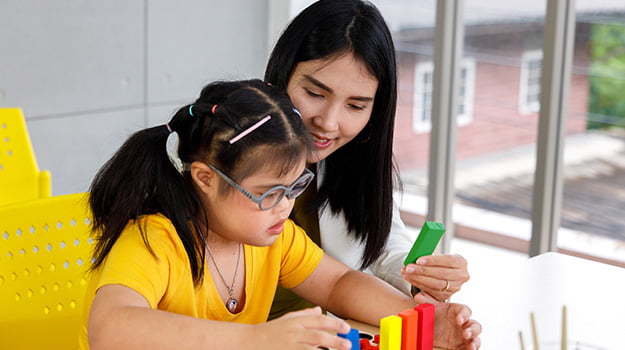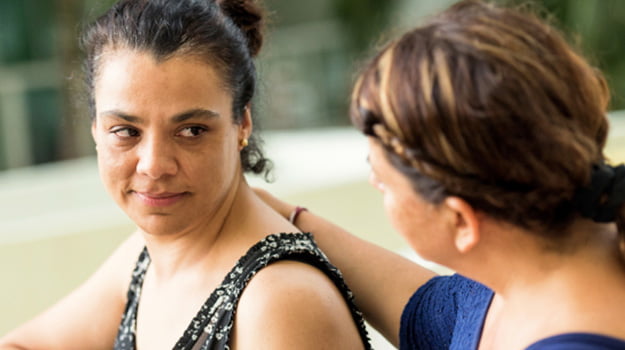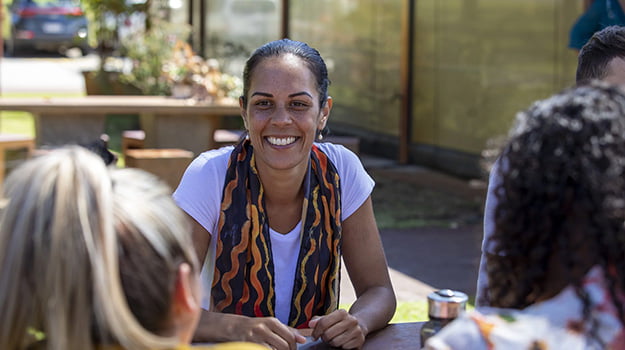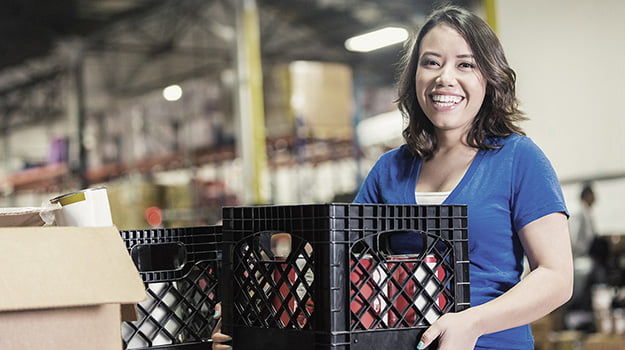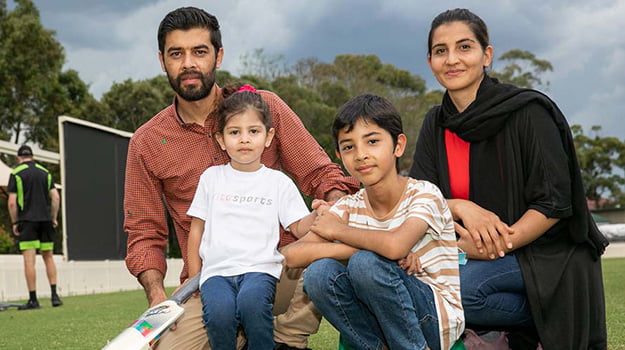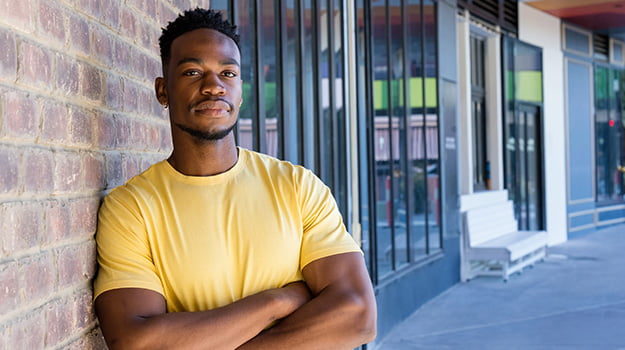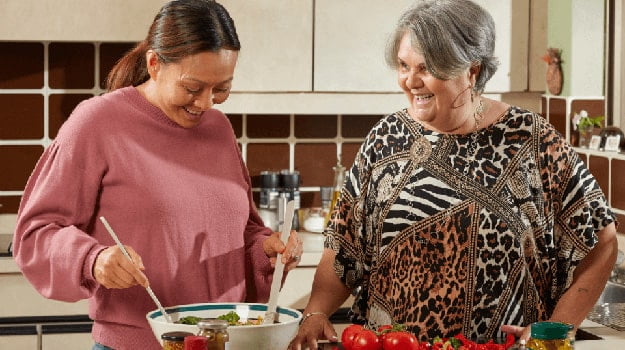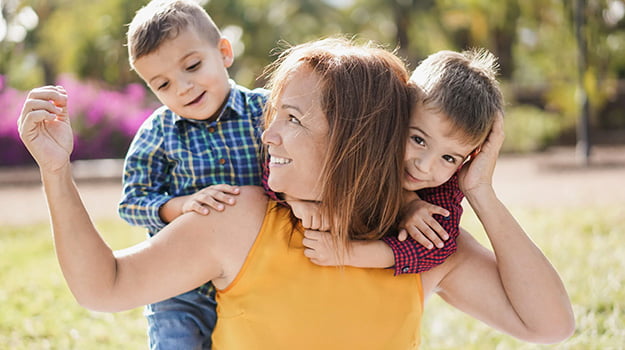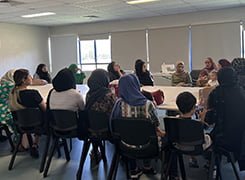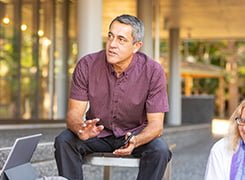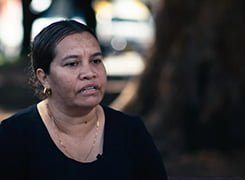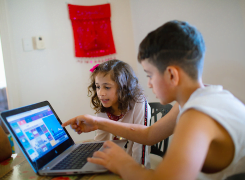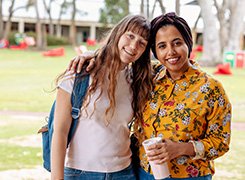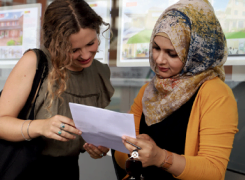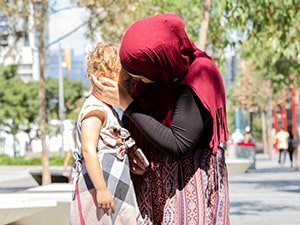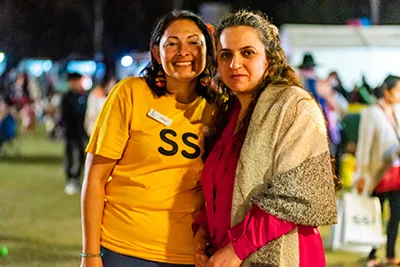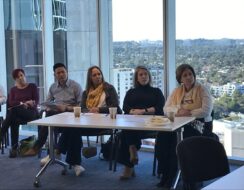16 Aug 2017
NewsCultural Shift 2017 showcases settlement innovation for migrant and refugee families
This was one of the key messages delivered in August at the Cultural Shift conference, which brought together experts, prominent Australians, practitioners, community groups and SSI members to explore and discuss the latest approaches to supporting migrant and refugee families through settlement.
“Settling in Australia provides migrant and refugee families with many new opportunities,” SSI CEO Violet Roumeliotis said in her opening address to the conference.
“However, we know that the process of re-establishing a life in a new country can also be challenging for many families, so we need to explore suitable measures to maximise the chances of a successful settlement — and this is what this conference is for.”
Captain Mona Shindy from Royal Australian Navy and Dr Karen Zwi, Associate Professor at UNSW, were the first keynote speakers of the conference, setting up the tone for a day that didn’t disappoint.
“It is a basic need to feel belonging to where you live,” said Ms Shindy, who migrated to Australia from Egypt as a three-year-old.
“A healthy and happy society is one where we accept differences, but where we can also be ourselves without feeling uncomfortable.”
A highlight of the first day was the closing plenary session led by award-winning journalist and documentary filmmaker Patrick Abboud, who conducted a discussion about the concept of belonging. A live video recording of the panel is available online here.

Journalist Patrick Abboud (left) facilitated plenary session with (L-R) Young Australian of the Year for Victoria Jason Ball, freelance storyteller Manal Younus, Professor Professor James Arvantakis and disability activist Diana Qian (not pictured)
A panel presentation with some of the most influential speakers in the settlement sector kicked off the second day. Focusing on community responses to migrant settlement, attendees learned about grassroots projects that have had outstanding results, such as the refugee settlement plan undertaken in the regional area of Mingoola, NSW, which has been embraced by the local community and credited with revitalising the country town socially and economically.
Speaking on the panel, NSW Coordinator General of Refugee Resettlement Professor Peter Shergold said regional areas could become an ideal setting for refugees arriving in Australia from rural backgrounds.
“It is time to allow community organisations and members to take part in the designing stage of refugee settlement plans, and not only in their delivery,” said Mr Shergold.
“Service providers such as SSI and its staff work every day with newly arrived refugees, and their knowledge makes them the ideal candidates to plan for settlement pathways, not only to deliver them.”

The conference was completed with a closing session where two inspiring service users, who acted as rapporteurs for the symposium, shared their moving stories with the audience.
“When I got sick while visiting Australia for a conference and I couldn’t go back to my country, I had no idea what to do,” said Ability Links NSW (ALNSW) participant Edwin Ikwu , who could never take the plane back to his native Nigeria after complications from a virus he contracted in Sydney left him with his limbs amputated.
“Thanks to service providers such as SSI, through their ALNSW program, I found support to maintain my confidence. They also linked me to various organisations despite not being eligible to many of the services due to not being an Australian resident, but finally they found the ones that could assist me and thanks to that I survived.”
Liverpool Girls High School student and Youth Advocate for SSI Youth Collective Rooan Al Kalmashi, sent a more critical message to the audience, pointing at the usual lack of youth representation in the policy-making processes, especially those young people from refugee and migrant background.
“Young people are isolated from democracy; we don’t get much representation or get asked to be part of the decision-making,” Ms Al Kalmashi said.
“However, Cultural Shift really resonated with me and it aligned with my values, as young people from all backgrounds were given a platform to express their voices and discuss problems affecting them, such as homophobia, misogyny or Islamophobia.”

For more of the action from Cultural Shift, check out our Facebook gallery, or head to Twitter and follow the hashtag #CulturalShift2017.

